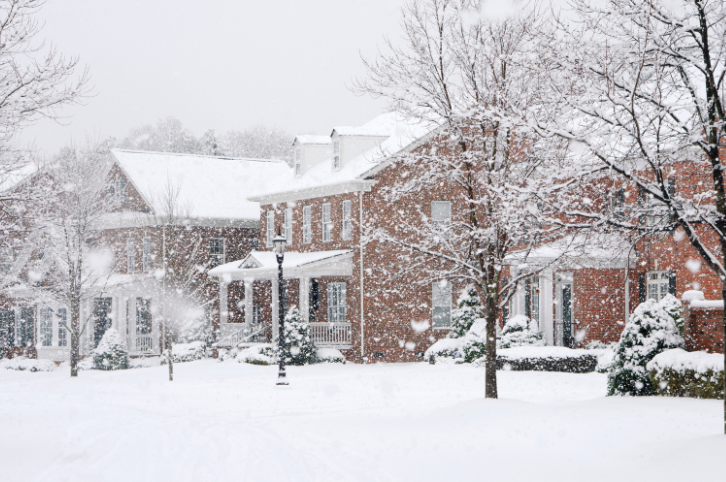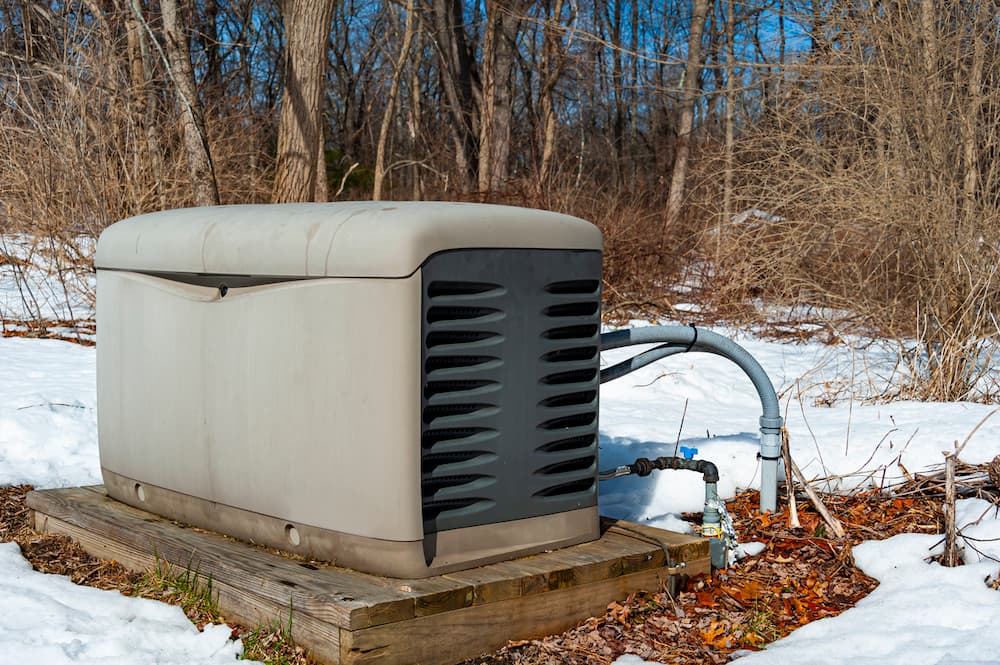
October 17, 2025
With Winter fast approaching, now is the time to make sure your generator is ready to go, and more importantly, that you’re operating it safely when you need it. A generator is a powerful tool for providing energy in times of need, especially during snow storms and other natural disasters when the power grid goes down, but many people wonder if their generator can handle running in adverse weather conditions like rain, snow, or storms.
The short answer is yes, with the right precautions. Let’s review how weather affects your generator, the risks to keep in mind, and the best safety and maintenance practices to keep your home powered all winter long.
Can You Run a Generator in Rain, Snow, and Storms?
Many homeowners wonder whether it’s safe to operate a generator during harsh New England weather. The short answer is yes, home generators can run in the rain, snow, and even storms if used correctly. However, moisture is one of the biggest risks to a generator’s performance, so knowing how to protect your equipment is key.
Running a Generator in the Rain and Snow
Many generator manufacturers design their products to be weather-resistant but not necessarily waterproof. Rain and snow can affect the generator’s output and even lead to a short circuit which can cause long-lasting damage. To reduce these risks, place your generator in a covered area or invest in a weatherproof generator enclosure that shields it from moisture.Generac generators, however, are built to withstand difficult conditions, but even so. taking extra precautions ensures your generator runs safely and reliably in wet or snowy weather.
Using Your Generator During a Storm
Storms can be unpredictable, and the amount of rain, wind, and thunder can vary from one tempest to another. These conditions put extra strain on your generator, especially during prolonged power outages. A properly installed and regularly maintained generator can continue to function during storms, but you should always operate it with care. Keep in mind that performance depends not only on the generator’s power capacity but also on how many appliances you’re asking it to run during the outage. Regular servicing and smart usage will help your generator handle even severe weather more safely.
Protecting Your Generator During Harsh Weather
If you need to run your generator in rain or snow, the best protection is a generator enclosure or cover. These keep moisture away from sensitive components while still allowing for airflow and ventilation.
- Covered Areas: If possible, place your generator under a roofed, open-sided structure.
- Enclosures: A weatherproof enclosure designed for generators provides the best protection.
- Elevation: Keep your generator off the ground to avoid water pooling around it.
Generator Maintenance Considerations for Winter
To ensure that your generator can withstand harsh weather conditions, it is essential to maintain it regularly. This includes regular oil changes, keeping the fuel tank full, ensuring all components work correctly, and cleaning your generator thoroughly.
You should also test-run your generator before major storms arrive, check the battery health, and make sure your transfer switch is functioning properly. For portable generators, it’s a good idea to keep extra fuel on hand and store it safely. Regular maintenance will help your generator perform better, particularly during adverse weather conditions and when you need it most.
Safety Precautions When Operating in Bad Weather
Keeping your generator safe during harsh weather conditions is essential to avoid accidents. This includes not opening the generator during rain, snow, or storm conditions, keeping the generator away from flammable materials, and using a ground fault circuit interrupter (GFCI) to avoid electrical shocks.
It’s also important to always run your generator outdoors and away from windows, doors, and vents to prevent carbon monoxide from entering the home. Make sure the unit is on stable, dry ground to reduce the risk of tipping or water exposure, and never attempt to refuel a generator while it’s still hot. Following these safety practices will help you operate your generator more reliably and protect your household during severe weather.
Consult the Generator Experts in Connecticut
When it comes to running your generator, improper use can lead to significant damage or accidents. The best way to ensure your generator works when you need it is to maintain and service it regularly, and that’s where PE Home Generators steps in!
Call our team today to invest in a whole home generator.
Recent News
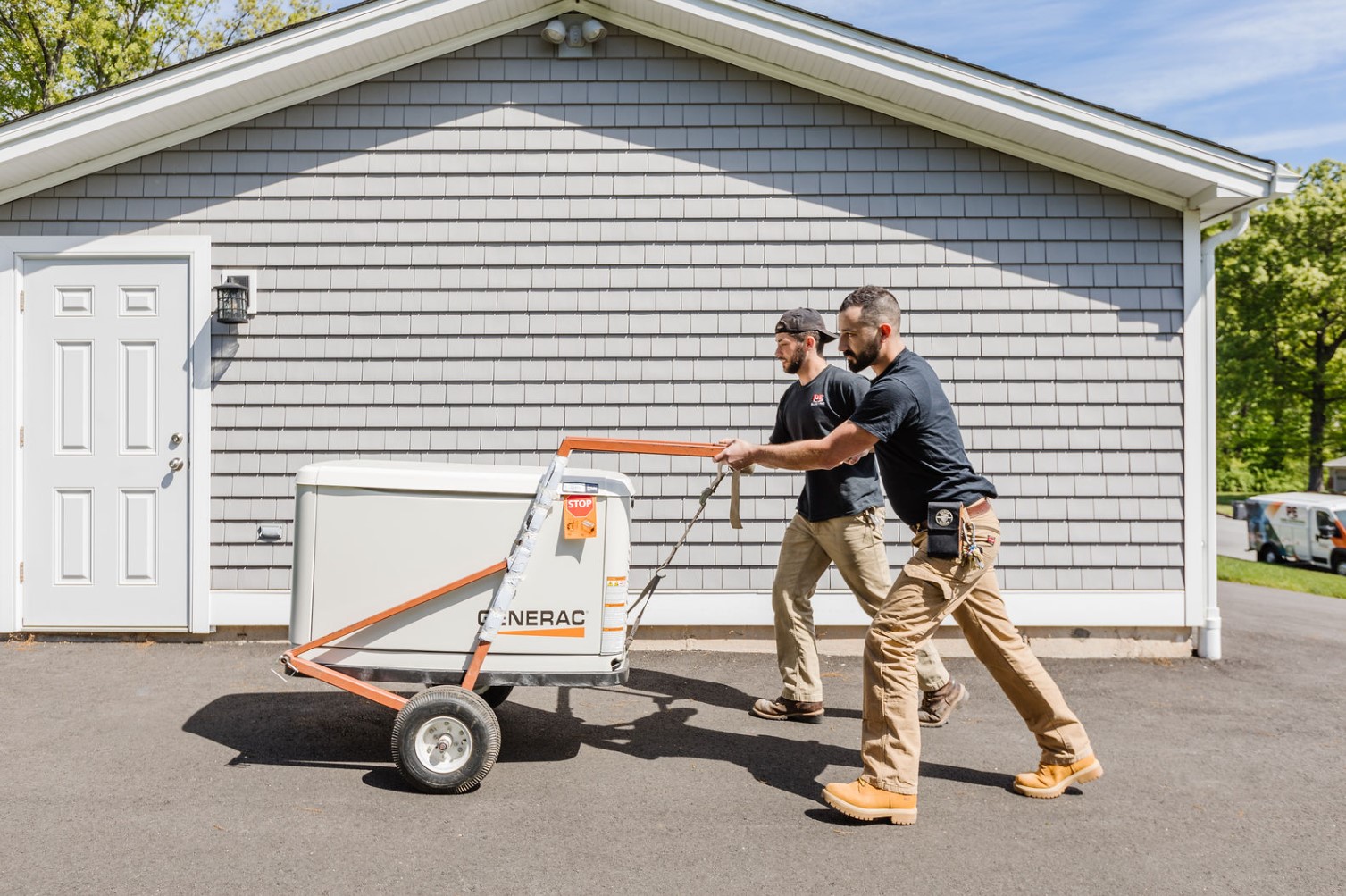
5 Common Myths About Home Generators Debunked
January 20, 2026
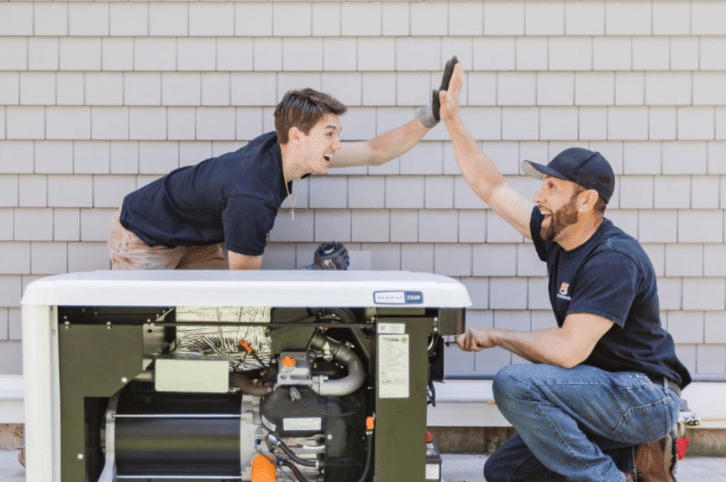
What to Expect During the Home Generator Installation Process
January 14, 2026
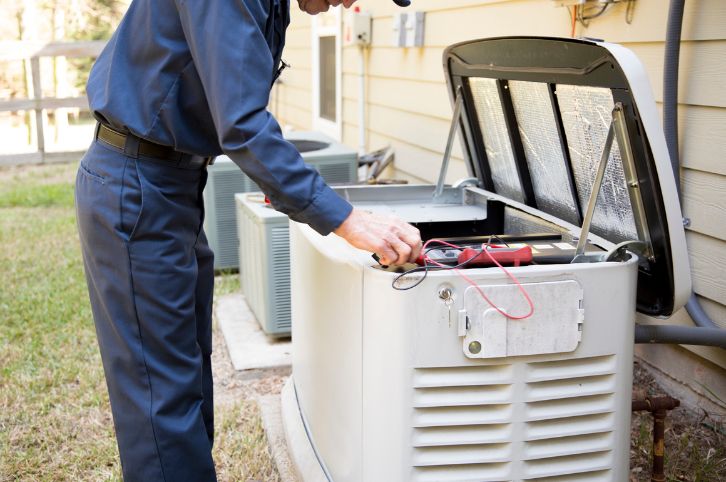
Generator Permitting and Town Regulations in Connecticut
December 16, 2025

The Top 8 Home Projects with the Highest Return on Investment
November 12, 2025
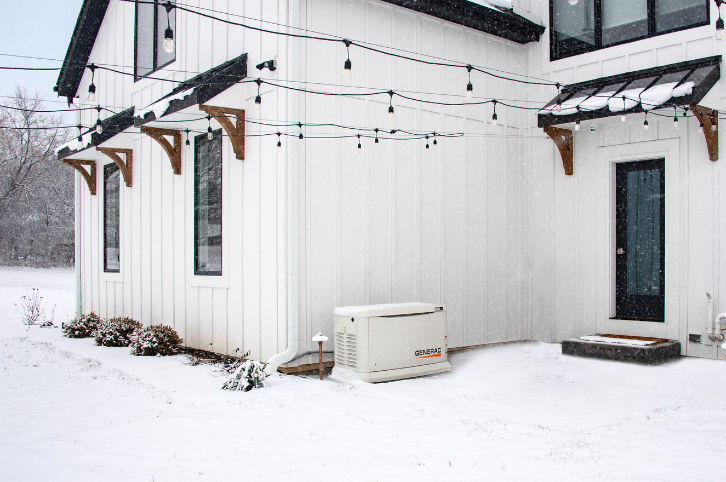
Can You Run a Generator During a Snowstorm or Nor’easter?
November 3, 2025
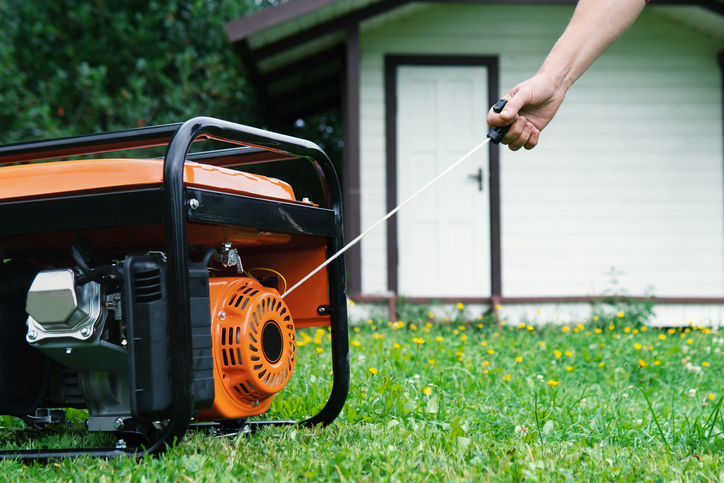
Portable vs. Standby: Choosing the Right Generator for Your CT Home
October 20, 2025
